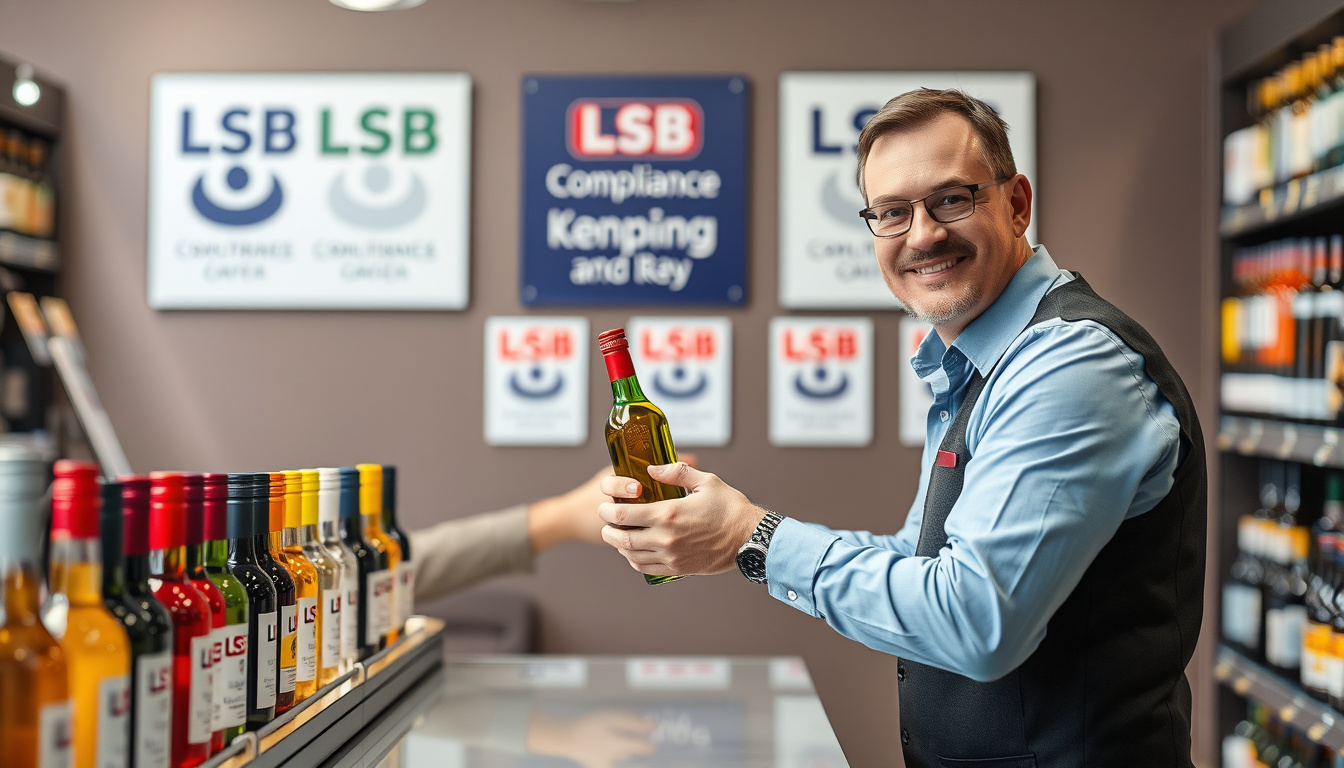In today’s regulated retail environment, compliance matters more than ever. Retail staff must learn proper legal sales practices. The LSB Responsible Vendor Training program meets this need. It keeps businesses legal, builds strong operations, and lowers penalty risks.
This article explains LSB Responsible Vendor Training. It covers what the training is, why it matters, its benefits, and how you can use it in your organization.
What is LSB Responsible Vendor Training?
LSB Responsible Vendor Training is a state rule. It educates retail staff on proper sales practices for age-restricted products like alcohol and tobacco. The Liquor and Cannabis Board (LSB) runs the program. LSB checks that vendors follow the law.
The training works by:
• Preventing underage sales.
• Helping staff spot signs of intoxication.
• Clarifying the legal costs of not following rules.
This setup gives vendors clear duties and protects both the community and the store’s name.
Why is LSB Responsible Vendor Training Essential for Retailers?
If you sell alcohol or cannabis, this training is usually required. Ignoring the rule can lead to fines, suspended licenses, or revocation.
Retailers gain by doing the training:
- Legal Compliance: Follow state rules easily.
- Risk Reduction: Cut down on illegal sales and lawsuits.
- Employee Preparedness: Help staff manage tough sales.
- Reputation Management: Build trust with customers and regulators.
Everyone learns their role. The training links actions directly to law, which lowers business risk.
Key Components of LSB Responsible Vendor Training
The training covers topics that support safe retail. These topics build a clear, connected system:
1. Understanding Relevant Laws and Regulations
Staff learn about the laws for selling alcohol, tobacco, and cannabis. They also get clear rules on age limits and licenses.
2. Identification Verification
Employees learn simple steps to check IDs. They also learn to spot fake IDs.
3. Recognizing Signs of Intoxication or Impairment
The training gives clear signs for spotting intoxication. Staff learn to stop a sale when needed.

4. Handling Difficult Customer Interactions
Practical examples prepare vendors for tough cases. They learn to say no to illegal or aggressive buying.
5. Consequences of Non-Compliance
The training explains legal and money penalties. It ties every risk directly to non-compliance.
How to Implement LSB Responsible Vendor Training in Your Retail Business
Plan your training carefully. Follow these steps:
-
Identify Responsible Employees
Find out which staff handle regulated product sales. Include cashiers and supervisors. -
Schedule Training Sessions
Book sessions with LSB-approved courses. Choose in-person or online options. -
Track Completion
Keep a record of every employee’s training and certificate. -
Reinforce Learning
Use refresher sessions or team meetings. Update the staff on changes in the law. -
Enforce Compliance
Monitor sales and run regular audits. This way, you can check that the rules are followed.
Benefits of Ongoing LSB Responsible Vendor Training
One training session is not enough. Retailers must commit to ongoing learning.
Ongoing training helps by:
- Keeping everyone updated with new laws.
- Offering staff a chance to grow in their career.
- Building a safer store for customers.
- Boosting the store’s trust in the community.
When rules link directly to daily work, compliance becomes second nature.
Frequently Asked Questions (FAQs) About LSB Responsible Vendor Training
Q1: What is the main purpose of LSB Responsible Vendor Training?
A1: Its main purpose is to teach retail staff the legal rules and safe sales practices for products like alcohol and cannabis. This stops illegal sales and enhances community safety.
Q2: Who needs to complete the LSB Responsible Vendor Training?
A2: Anyone who sells, serves, or supervises the sale of alcohol, tobacco, or cannabis must take the training. This compliance is required by the state.
Q3: How often should employees renew their LSB Responsible Vendor Training certification?
A3: Usually, the training must be renewed every two years. Check current state rules for any changes or updates.
Conclusion
For retailers selling regulated products, LSB Responsible Vendor Training is a key step for legal and ethical operations. It teaches every employee clear, simple rules for sales. Doing so keeps stores legal, reduces risks, and builds a trusted brand.
To learn more about the training and rules, visit the official Liquor and Cannabis Board website (source).
By choosing LSB Responsible Vendor Training, your retail business works with clarity, safety, and respect for the community.


